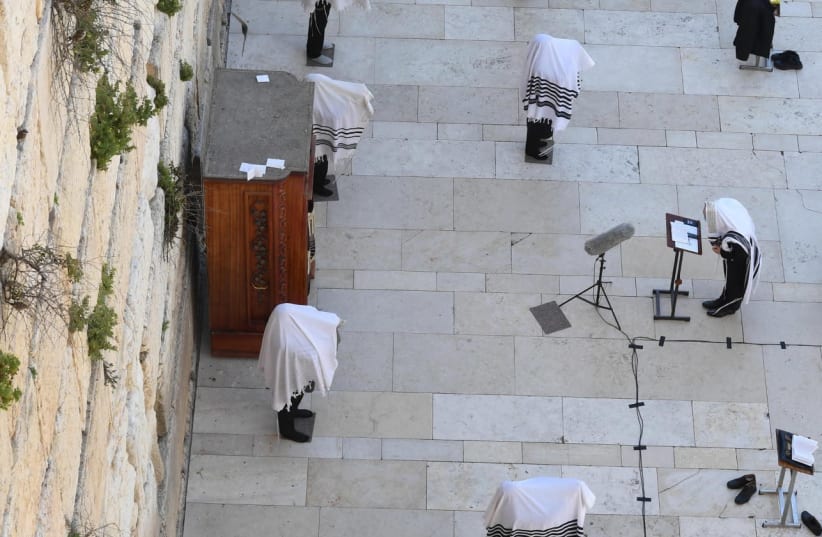Within an hour of the announcement of a second lockdown in Israel just before Rosh Hashanah, I heard from three friends of their planned exodus from Israel – one to Greece for a month, the second to Florida for three weeks and the third to London for six months. All three seemed to dread the prospect of staying in Israel during lockdown.
For a short moment, with friends and family overseas, I was tempted to sign myself up, too. The thought of traveling again after six long months of hiatus was tempting. However, it didn’t take long for me to come back to my senses, realizing the grass is not always greener on the other side.
The COVID-19 pandemic is worldwide and maybe it’s time to hunker down, go with the flow and not protest too much. Maybe we should just declare 2020 an international Sabbatical year.
Israelis are masters at finding loopholes, which helped make Israel the “Start-Up Nation.” Health experts even blame this attribute of looking to outsmart the virus for the second wave. The period we find ourselves in is best described in Ecclesiastes, traditionally read on Sukkot: “To everything there is a season and a time for every purpose under the heaven.” Timing is everything. It suddenly dawned on me how much more than usual I had flown in 2019, so much so that I was upgraded to the highest frequent flier status in January 2020. I was beginning to enjoy the trappings of a jetsetter. A neighbor even told me he suspected that I worked for the secret service flying so much.
Back to earth, with our Rosh Hashanah reservation for King David Hotel in Jerusalem canceled, we rediscovered the joys of homemade cooking, a humble pie in comparison. However, I still managed to enjoy that first class feeling not overseas but at the Western Wall. I had the whole wall to myself – incredibly the whole front row was empty. Never before, short of when my father – of blessed memory – presided over religious services, had I enjoyed as much the High Holy Day prayers. I followed each word in the machzor. As an active participant in history in the making, I could relate to the prayer to remove the plague which is now called COVID.
This year, it was pure prayer with no background noise, and even the Shofar blowing was perfect. On Yom Kippur, I was not allowed to pray at the Western Wall and discovered the real meaning of the words “mutual responsibility” in the Torah. My wonderful neighbors set up a provisional synagogue in their front yard so we could pray there on Yom Kippur.
The story of the binding of Isaac, which is traditionally read on Rosh Hashanah, embodies that gratitude associated with being a Jew. The root of the word Jew – “Yehudi” – is derived from giving thanks.
In these very challenging times people may feel there is little cause to give thanks. Abraham’s story should provide us with the clue as to the proper frame of mind in which to view the world. On his way to sacrifice his son, Abraham tells his servant to wait and both would soon return. The Talmud states that had Abraham said “I” instead of “we” would return, he would have returned alone without Isaac. Abraham knew the power of words to change worlds.
In fact, according to the Jewish world outlook, thanking God in advance will ultimately afford us a reason to be grateful in the future. Had Abraham possessed no faith that he would return with Isaac, then there would have been no Jewish nation.
During this pandemic, it behooves us to focus on all we have to be grateful for: our health and well being, which we have to safeguard. The High Holy Day prayer ends with words so fitting for our times: “May this be a time for gratitude!”
The writer is a journalist and director of TLC in Potomac, Maryland, who currently resides in Jerusalem
